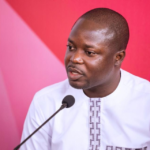The Ministry of Education has inaugurated a reconstituted Education Sector Research Group (ESRG), marking a major milestone in Ghana’s quest for evidence-based policymaking in the education sector.
The inaugural ceremony, held at the Minister’s Conference Room, highlighted the importance of leveraging data and research to inform policies aimed at improving learning outcomes for Ghanaian children.
The reconstitution of the ESRG is a flagship component of the Ghana Accountability for Learning Outcomes Project Additional Financing (GALOP AF2), a government initiative supported by the World Bank and other development partners to scale up effective interventions and strengthen research systems. GALOP AF2 is also funding the revitalized research group.

In his address, the Minister for Education outlined three main drivers for revamping the ESRG:
- Enhanced Vibrancy and Inclusivity: While the previous ESRG provided valuable insights, it lacked the scope and momentum to meet the growing demand for timely, relevant research. The new ESRG features an expanded and diverse membership, bringing together voices from academia, civil society, think tanks, and development partners. This broad coalition is expected to enrich the national Research and Learning Agenda (RLA) with deeper insights and varied perspectives.
- Improved Coordination through GEEDLab: A key innovation under GALOP AF2 is the establishment of the Ghana Education Evidence and Data Laboratory (GEEDLab). This new facility will serve as a hub for collaboration between researchers, data scientists, and policymakers. The ESRG will play a supervisory role in guiding the work of GEEDLab to ensure that data collection and analysis align with policy needs.
- Accelerated, Smarter Decision-Making: The new ESRG is also expected to shorten the time between evidence generation and policy action. This agility will help the Ministry proactively address urgent challenges such as learning losses, digital disparities and education-related emergencies.
The Minister charged the ESRG with several key tasks, including finalizing a national Research and Learning Agenda, generating actionable research briefs, and tracking how research is used to shape policy. Members were encouraged to challenge assumptions, share data, avoid duplication, and commit to collaboration and transparency by publishing study protocols and datasets.
“Evidence without action is merely information,” the Minister emphasized. “But when harnessed for strategic decisions, evidence becomes the power to allocate resources equitably and improve learning outcomes,” Mr. Iddrisu stressed.

He also called on members to engage in regular, data-driven quarterly reviews and fully utilize GEEDLab as a shared platform for analytics and learning. The ESRG’s work, he noted, must align with GALOP AF2 indicators to demonstrate tangible improvements in equity, learning, and accountability.
The Minister expressed appreciation to development partners, including the SCALE Funders, Global Partnership for Education (GPE) and the World Bank, for their continued support and confidence in Ghana’s education reforms.
He concluded with a call to action emphasizing that “let this reconstituted ESRG be a reference point for vibrant collaboration and a decisive, evidence-generating platform, one that honours the millions of Ghanaian children whose futures depend on the choices we make today.”
Source: Starrfm.com.gh




